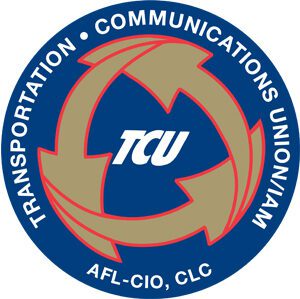On September 14, National President Bob Scardelletti wrote a letter to all members of the House of Representatives opposing any increase in weight limitations for trucks. An increase would unfairly and unnecessarily threaten the freight railroad industry and our members who help run the nation’s most efficient, cost-effective, and greenest mode of transportation.
Read National President Scardelletti’s letter below:
September 14, 2015
Please Oppose the Safe, Flexible and Efficient Trucking Act of 2015
Dear Representative,
On behalf of the members and officers of the Transportation Communications Union/IAM, I urge you to oppose the so-called Safe, Flexible, and Efficient Trucking Act of 2015, H.R. 3488. This proposed legislation needlessly increases truck weight limitations and would do little to improve transportation commerce while placing additional stress on our nation’s already-strained roads and bridges. If passed, this bill would result in higher costs for taxpayers; worsened gridlock and safety; and additional harm to the environment.
Safety Hazards
The issue of increasing truck weight has been brought before Congress numerous times by advocates of the trucking industry that – simply put – want to be able to transport a larger, heavier load on a single truck or longer combination vehicle (LCV). Their interests lie solely in the profitability of such a rule change instead of prioritizing the safety of all drivers as well as the maintenance costs saddled on to taxpayers. The proposed legislation aims to increase the current weight limits by 14% – an additional 11,000 lbs. per truck. This would be an unprecedented and dangerous increase that could dramatically impact road safety and costs.
An independent study by the Multimodal Transportation & Infrastructure Consortium (MTIC) found “disturbingly higher crash rates for trucks that are longer or heavier than the current standard 80,000-pound, five-axle truck” (MTIC, 2013/14). Studies also show that heavier trucks tend to have stability issues due to the additional weight raising their center of gravity; they also require much longer stopping distances (USDOT, 2000). Perhaps that is why the American Automobile Association (AAA) as well as 75% Americans are opposed to heavier trucks on the highway (AAA, 10/29/13 ;The Hill, 2/20/15).
Impact on Roads, Bridges and Railroads
An increase in truck weight would heavily impact our nation’s roads and bridges. The U.S. Department of Transportation estimates the existing backlog of bridge repairs to be approximately $121 billion (US DOT Conditions and Performance Report, 2010). If Congress were to increase weight limits for trucks that figure could balloon by at least $53 billion – a needless expense to saddle on the American taxpayer. Furthermore, the industry’s claim that an extra axle would negate the effects of additional weight on bridges is misleading as bridges are distressed from gross weight, not just weight distribution.
The weight limit increase would also have a detrimental effect on our nation’s railroads. Studies show a proposal of this nature would lead to a large decline in rail traffic – potentially reducing merchandise traffic on Class I railroads by up to 50% (an overall reduction of 19%). The impact on more vulnerable short line railroads could be even more crippling (USDOT, 2000).
Why should we increase truck weight limits when our nation’s railroads provide a safer, greener, and more cost-effective option for our nation’s transportation needs? Indeed, the USDOT agreed in their June 2015 Comprehensive Truck Size and Weight Technical Reports Summary that no changes to truck size and weight laws and regulations should be considered at this time.
The members of the Transportation Communications Union/IAM believe safety must always come first. And it is clear to our officers and our membership that this bill makes our roads more dangerous for everyone involved, while enabling unnecessary, unsafe, and unfair competition to the railroad industry. For these reasons, and with my members’ support, I urge you to oppose any increase in truck weight limits, including the so-called Safe, Flexible, and Efficient Trucking Act of 2015, H.R. 3488.
Sincerely,
Robert A. Scardelletti
National President

